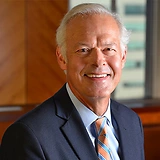Today the Supreme Court ruled against the Trump Administration’s attempt via the Department of Homeland Security (DHS) to end the DACA program (aka Deferred Action for Childhood Arrivals or “Dreamers”). DACA allows certain unauthorized aliens who arrived in the U.S. as children to apply for work authorization and various federal benefits. This applies to some 700,000 aliens.
Chief Justice Roberts wrote the majority decision. Notably, three days ago in the Bostock case extending federal anti-discrimination law to LGBT employees, the Chief Justice also decided against the Administration. This time, he said DHS did not follow the correct administrative process in trying to end DACA.
The Court’s constitutional role is not to decide whether or not DACA is good public policy. But it is the Court’s role to review whether a federal administrative agency legally followed its own procedures. DHS did not.
In certain Supreme Court cases the practical context of the decision can be critically important even though the decision itself involves technical questions of administrative law and procedure. That’s true in today’s DACA case.
The context of this case is the American health care workforce during a pandemic crisis. The 700,000 Dreamers include significant numbers of (actual and potential) well-educated, trained, talented and necessary health care workers needed on the front lines of America’s Covid-19 fight.
The Court, rightly, did not dwell on the larger immigration policy debate around the increased demand and critical need for health care workers. Some 50,000 Covid deaths in the U.S. relate to nursing homes. In near and long term labor market projections, America will need many more skilled, dedicated and versatile health care workers who can serve in a variety of acute and non-acute care venues, from hospitals, to long-term care facilities, to skilled nursing facilities to home-delivered health care. Needless to say, this is hard, often thankless, work. The pandemic is teaching Americans who are wide awake to thank their health care providers, and to thank them again and again.
The constitutional principle of the general welfare includes protecting We the People from a virus that has killed over 100,000 Americans.
The Court’s DACA decision today may sound like arcane legal process, but its larger context is about unleashing talent.
The country and world, especially now, needs dreamers.

